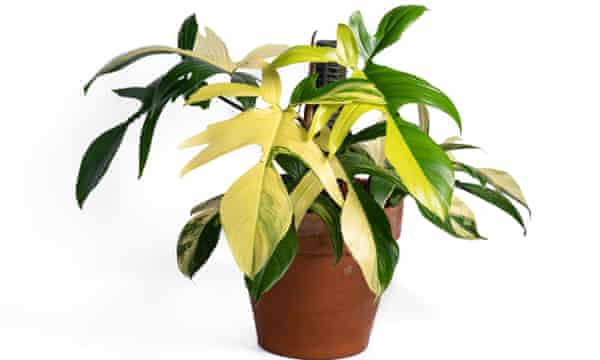[ad_1]
It seems I have got to that awkward age when I am simultaneously old enough to recoil from the new vocabulary of hipster-speak, yet still young enough to know that within a week or so I will find myself using it. The whole raft of new, often colourful gardening terminology that has accompanied the sudden influx of younger and more diverse voices into horticultural media, largely thanks to platforms such as Instagram, fascinates me. My favourite term is one I learned only yesterday from my suitably bearded and tattooed Instagram buddy @botanicalotter: plant-flexing.
Adapted from 90s US rapper slang, to “plant-flex” is the horticultural version of performatively displaying one’s wealth via the use of status symbols – in this case the status symbol might be something like a variegated monstera. The idea that a humble houseplant can now be equated to a sports car or fat wad of cash might seem surprising, but single leaf nodes of some must-have species now sell for tens of thousands of pounds on online auction sites.
Sadly, such inflated prices have led to online scam artists selling counterfeits, and to widespread theft from botanic gardens. They can also leave the rest of us who lack the resources (or frankly desire) to play the plant-flexing game feeling a little inadequate.
Of course, having plants as status symbols is nothing new – think of the craze for tulips in 17th-century Holland or the 19th-century British obsession with unusual exotic trees. But what does this latest surge in the price of houseplants say about a hobby that was once seen as an accessible oasis in the world of gardening, relatively free from the stuffy class fixations of the rest of horticulture? As you can probably tell, I feel this new fetishisation of some plants risks creating the kind of barriers that, until recently, left a whole generation feeling excluded from the industry.

However, there is another perspective. Ever since I started working in horticulture, 20 years ago, we have been complaining about how little we are paid and how no one values our skills. So it seems a bit rich to start getting cross when some of us are finally getting some kind of recognition. Do these high prices actually encourage commercial growers to adopt rare plants into the mainstream, making them available to the mass market within years (sometimes just months) of them first taking off online? The actions of a few big spenders might help expand the whole market, which ultimately may benefit regular gardeners.
A few years ago there were only about 10 houseplant species to choose from as big-box garden centres continually slashed their ranges to replace them with shelves of orthopaedic shoes and meerkat-shaped solar lights.
I guess the same arguments apply to industries such as fashion, art and tech, and the truth is probably somewhere in between. But for the present, I find it exciting that I am finally not the only person fascinated by house plants – even if I am now one of the oldest.
Follow James on Twitter @Botanygeek
[ad_2]
Source link



